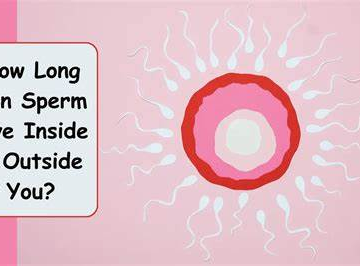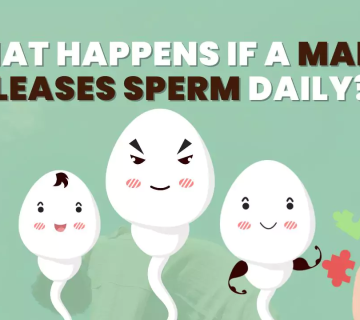
Does Testosterone Replacement Therapy (TRT) Lower Sperm Count?
Imagine you’re a guy in your 30s, feeling tired all the time, with a sex drive that’s gone missing and muscle mass that’s fading fast. Your doctor suggests testosterone replacement therapy (TRT) to get you back on track. Sounds like a win, right? But then you hear a whisper: “TRT might tank your sperm count.” If you’re dreaming of starting a family someday, that’s a gut punch. So, what’s the truth? Does TRT really lower sperm count, and if so, how bad is it? Let’s dive deep into this question, unpack the science, and figure out what it means for you—without the fluff or the bullshit.
This isn’t just another dry medical article. We’re going beyond the basics to give you the full picture—how TRT works, why it messes with your swimmers, and what you can do about it. Expect hard facts, real-world examples, and practical tips you won’t find in every generic blog post. By the end, you’ll know if TRT is a fertility friend or foe, and how to navigate it like a pro.
What Is TRT, and Why Do Guys Use It?
Testosterone replacement therapy is like a boost button for guys whose testosterone levels have dipped below normal. Think of testosterone as the fuel for your manhood—it powers your sex drive, builds muscle, strengthens bones, and even keeps your mood steady. When levels drop (a condition called hypogonadism), you might feel like a car running on fumes: sluggish, weak, and not firing on all cylinders. TRT steps in with synthetic testosterone—delivered via injections, gels, patches, or pellets—to top off your tank.
Guys turn to TRT for all sorts of reasons. Maybe you’re 45, noticing your energy’s gone to shit and your libido’s on life support. Or you’re a gym rat chasing bigger gains, and your natural testosterone isn’t cutting it anymore. Hell, some dudes even use it because they heard it’s the fountain of youth. Doctors prescribe it for legit medical issues like low T from aging, injury, or genetics, but the off-label crowd—think bodybuilders or “biohackers”—is growing fast. In the U.S., TRT use has tripled in the last decade, with millions of men hopping on the bandwagon.
But here’s the catch: while TRT might make you feel like a badass again, it’s not all sunshine and rainbows. One big side effect keeps popping up in the rumor mill—sperm count. If you’re planning to have kids, that’s a red flag you can’t ignore. Let’s break it down step by step.
How Does Your Body Make Sperm and Testosterone Naturally?
To get why TRT might fuck with your sperm, you need to know how your body runs the show naturally. It’s all about the hypothalamic-pituitary-gonadal (HPG) axis—a fancy term for the teamwork between your brain and balls.
Here’s the quick rundown:
-
- Brain Kickoff: Your hypothalamus (a tiny control center in your brain) releases gonadotropin-releasing hormone (GnRH). Think of it as the starting whistle.
-
- Pituitary Play: GnRH tells your pituitary gland to pump out two hormones—luteinizing hormone (LH) and follicle-stimulating hormone (FSH).
-
- Testes Takeover: LH hits the Leydig cells in your testicles, sparking testosterone production. FSH teams up with that testosterone to kickstart spermatogenesis—aka sperm-making—in the seminiferous tubules. It’s a delicate dance, and everything’s got to sync up.
Testosterone in your balls is crazy high—50 to 100 times more concentrated than in your bloodstream. That’s what keeps the sperm factory humming. Meanwhile, your brain uses a feedback loop to keep things balanced: too much testosterone, and it dials back GnRH; too little, and it cranks it up. Simple, right?
Now, throw TRT into the mix. You’re injecting or slathering on extra testosterone from the outside. What happens next? Shit gets messy.
Why Does TRT Mess With Sperm Count?
Here’s where the rubber meets the road. TRT doesn’t just add testosterone—it hijacks your whole system. When you flood your body with synthetic T, your brain thinks, “Holy hell, we’ve got enough!” That feedback loop kicks in hard, shutting down GnRH like a kill switch. No GnRH means no LH or FSH from the pituitary. And without those two, your testicles get lazy.
-
- LH Drops: No signal to the Leydig cells, so your natural testosterone production tanks.
-
- FSH Fades: No push for the seminiferous tubules, so sperm production slows—or stops cold.
Studies back this up. Research from the Journal of Clinical Endocrinology & Metabolism shows that TRT can suppress intratesticular testosterone (the stuff in your balls) to less than 5% of normal levels. Sperm need that high local T to thrive—without it, they’re toast. One study found that within 10 weeks of TRT, 75% of men had zero sperm in their ejaculate (azoospermia). Another from Translational Andrology and Urology pegged the drop at 65% of users hitting azoospermia in four months. That’s not a small dip—that’s a fucking cliff.
Real talk: TRT turns your balls into freeloaders. They stop working because the synthetic stuff takes over. Your sperm count doesn’t just “lower”—it can vanish. But is it permanent? Hold that thought—we’ll get there.
How Bad Is the Damage? The Numbers Don’t Lie
Let’s cut through the noise with some hard data. TRT’s impact on sperm count isn’t a maybe—it’s a fact. Here’s what the science says:
-
- Short-Term Hit: A 2023 study in Fertility and Sterility tracked 66 men on TRT. After six months, 70% had a total motile sperm count below 5 million—way under the 15 million per mL benchmark for “normal” fertility.
-
- Azoospermia Rates: The World Health Organization tested testosterone as a male contraceptive (yep, it’s that effective). In their trials, 65% of guys were sperm-free after four months. Some hit that mark in just 10 weeks.
-
- Dose and Duration: The longer you’re on TRT, and the higher the dose, the worse it gets. A 2024 report from Andrology showed men on high-dose injections (200 mg/week) took longer to recover sperm than those on gels or lower doses.
But it’s not all doom and gloom. Age matters too. Older guys (over 40) tend to recover slower than younger ones, per a PMC study from 2018. If you’re 25 and jacked up on T, your bounce-back might be quicker than a 50-year-old’s. Still, “quicker” doesn’t mean instant—think months, not days.
So, yeah, TRT lowers sperm count. Big time. But how does that play out in real life? Let’s look at a couple of guys caught in the crossfire.
Real-World Scenarios: TRT Meets Family Planning
Case 1: Jake, 32, Gym Bro Turned Wannabe Dad
Jake’s a fitness junkie. At 32, he started TRT to boost his gains—100 mg of testosterone cypionate weekly. Felt like a god for a year: more muscle, killer libido, energy through the roof. Then he and his wife decided it was baby time. Six months trying, no luck. A semen analysis showed zero sperm. Zilch. His doc explained TRT shut down his HPG axis. Jake quit cold turkey, started clomiphene citrate (more on that later), and after nine months, his count crept back to 10 million per mL. Not great, but enough to conceive with some help.
Case 2: Mike, 48, Tired Dad Seeking a Boost
Mike’s different. At 48, he’s got two kids already but felt like crap—low T symptoms were killing him. Doc put him on a testosterone gel, 50 mg daily. He didn’t care about more kids, so the sperm drop didn’t faze him. But when his wife (38) changed her mind about a third, they hit a wall. His count? Under 1 million per mL after two years on TRT. Recovery’s been slow—even after stopping, he’s still at 3 million a year later. Age and duration stacked the deck against him.
These aren’t edge cases. They’re what happens when TRT and fertility collide. The takeaway? Timing and goals matter. If kids are on your radar, TRT’s a gamble.
Can You Bounce Back? Recovery After TRT
Alright, so TRT trashes your sperm count. But is it game over? Not always. Your balls aren’t broken forever—they’re just on pause. Here’s how recovery works:
-
- Timeline: Most guys see sperm return in 6-12 months after quitting TRT, per a 2023 PMC analysis of 30 studies. Median recovery to 20 million per mL? About 3.4 months. Full baseline? Up to two years for some.
-
- Success Rate: Around 67% hit decent counts by six months, 90% by 12. But 4-10% stay low or azoospermic long-term—rare, but real.
-
- Boosters: Drugs like human chorionic gonadotropin (hCG) or clomiphene citrate can speed things up. A 2024 Andrology trial showed hCG plus a selective estrogen receptor modulator (SERM) got 70% of guys above 5 million motile sperm in 12 months.
Factors like age, TRT duration, and baseline fertility play huge roles. Younger dudes with shorter stints fare better. Older guys or long-term users? It’s a slog. And if you’ve got underlying issues (like varicoceles or shitty genetics), recovery’s dicier.
Pro tip: Freeze your sperm before starting TRT. It’s like an insurance policy—$500-$1,000 upfront beats years of regret.
Alternatives to TRT: Keep the T, Save the Sperm
What if you want the perks of TRT—energy, libido, muscles—without screwing your fertility? Good news: there are options. These sidestep the HPG shutdown and keep your sperm factory running.
1. Clomiphene Citrate (Clomid)
-
- How It Works: Blocks estrogen in your brain, tricking it into pumping out more LH and FSH. More natural T, more sperm.
-
- Results: Studies show average T jumps from 300 to 550 ng/dL, with sperm counts holding steady or improving.
-
- Downside: Mood swings or hot flashes in some guys. Not as potent as TRT for muscle gains.
2. Human Chorionic Gonadotropin (hCG)
-
- How It Works: Mimics LH, telling your balls to make T and keep sperm rolling.
-
- Results: A 2023 study bumped T from 320 to 778 ng/dL in three months, with minimal sperm drop.
-
- Downside: Injections 2-3 times a week. Pricey—$100-$200/month.
3. Enclomiphene Citrate
-
- How It Works: A newer SERM, cleaner than Clomid. Boosts T without estrogen side effects.
-
- Results: Phase III trials in 2024 showed T gains like TRT gels, with sperm counts near placebo levels.
-
- Downside: Not FDA-approved yet, so it’s off-label and hard to find.
These aren’t perfect—TRT’s raw power is tough to match—but they’re fertility-friendly. Talk to a doc who gets male hormones, not just any GP tossing scripts.
TRT Myths Busted: What You’ve Heard vs. What’s True
The internet’s a cesspool of TRT rumors. Let’s clear the air with facts:
-
- Myth: “Low T means low sperm, so TRT fixes it.”
-
- Truth: Low blood T doesn’t always mean low sperm. TRT tanks intratesticular T, killing sperm production. Opposite of help.
-
- Myth: “Low T means low sperm, so TRT fixes it.”
-
- Myth: “Gels are safer for fertility than shots.”
-
- Truth: All TRT forms suppress the HPG axis. Shots might hit harder, but gels still drop sperm counts—65% azoospermia rates don’t lie.
-
- Myth: “Gels are safer for fertility than shots.”
-
- Myth: “You’ll never recover after TRT.”
-
- Truth: Most guys do, but it takes months. A small minority don’t, especially older or long-term users.
-
- Myth: “You’ll never recover after TRT.”
Don’t trust bro-science from the gym. Check studies, not Reddit threads.
Practical Tips: Navigating TRT and Fertility Like a Boss
So, you’re eyeing TRT but want kids someday—or you’re on it and rethinking shit. Here’s your playbook:
Before Starting TRT
-
- Get Tested: Baseline T levels and a semen analysis. Know where you stand.
-
- Freeze Sperm: Cheap, easy, and future-proofs your options.
-
- Ask About Alternatives: Clomid or hCG might do the trick without the fertility hit.
On TRT Now
-
- Quit Smart: Don’t cold-turkey without a doc. Taper off and add hCG or SERMs to jumpstart recovery.
-
- Monitor: Semen analysis every 3-6 months post-TRT to track progress.
-
- Be Patient: Six months is average, but don’t freak if it’s longer.
Already Struggling?
-
- See a Specialist: Urologists or reproductive endocrinologists beat general docs here.
-
- IVF Backup: If sperm’s low but not zero, in vitro fertilization’s on the table.
The Big Picture: Weighing TRT’s Pros and Cons
TRT’s a beast—it can transform your life, but it’s got teeth. Here’s the scorecard:
Pros
-
- Boosts energy, libido, and muscle like nothing else.
-
- Fixes real hypogonadism symptoms fast.
-
- Millions swear by it for quality of life.
Cons
-
- Slaughters sperm count—65-75% risk of azoospermia.
-
- Recovery’s a crapshoot—months to years, if at all.
-
- Long-term use ups the stakes for permanent damage.
If kids aren’t your thing, TRT’s a no-brainer. But if fatherhood’s on the horizon, it’s a hell of a risk. Balance your now versus your later.
Interactive Shit: Test Your TRT Smarts
Quick Quiz: What’s Your TRT Risk?
Answer these to see where you land:
-
- Planning kids in the next 1-2 years? (Yes/No)
-
- Over 40? (Yes/No)
-
- Willing to freeze sperm? (Yes/No)
-
- Been on TRT over a year? (Yes/No)
Results:
-
- Mostly “Yes”: High risk—TRT could fuck your plans. Explore alternatives.
-
- Mostly “No”: Lower risk—short-term TRT might be fine with precautions.
Poll: What’s Your Take?
Vote below:
-
- TRT’s worth it, sperm be damned.
-
- Fertility’s non-negotiable—I’d skip it.
-
- I’d freeze sperm and roll the dice.
Wrapping It Up: TRT and Sperm Count, Unfiltered
Does TRT lower sperm count? Hell yes—it’s not a “maybe,” it’s a goddamn guarantee. The science is crystal: synthetic testosterone shuts down your HPG axis, slashes intratesticular T, and sends your sperm count into the abyss. Most guys recover, but it’s a slog—6-12 months, sometimes more—and a few never make it back. Age, dose, and time on TRT tilt the odds.
But it’s not black-and-white. TRT’s a lifeline for some, a luxury for others. If you’re cool with no kids or already done, fire away. If not, weigh your moves—freeze sperm, try alternatives, or hold off. This ain’t a one-size-fits-all deal. Talk to a real doc, not your gym buddy, and own your choice.
Got thoughts? Drop a comment—agree, disagree, whatever. Share this if it helped. Let’s keep the convo real.



